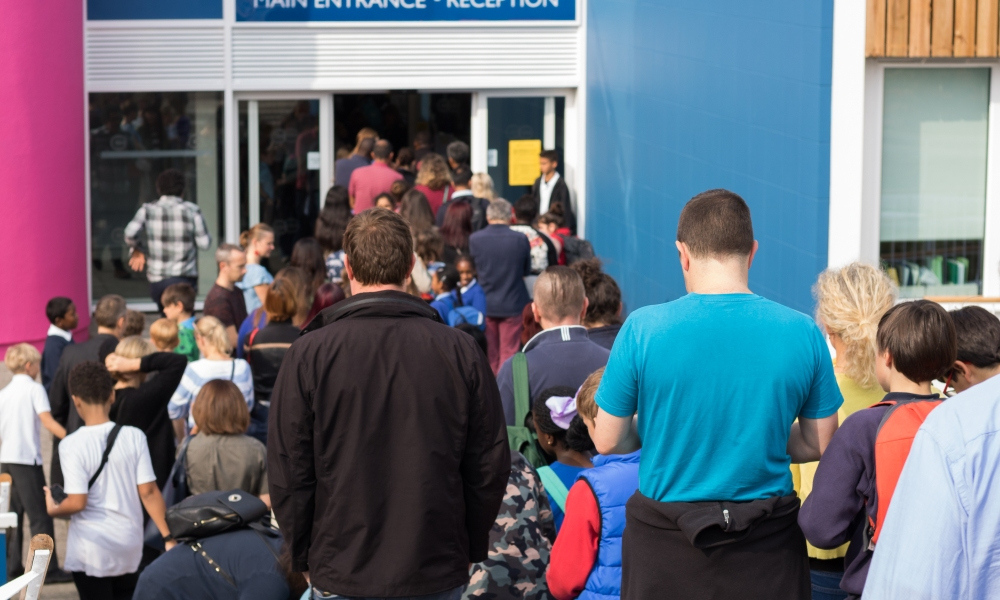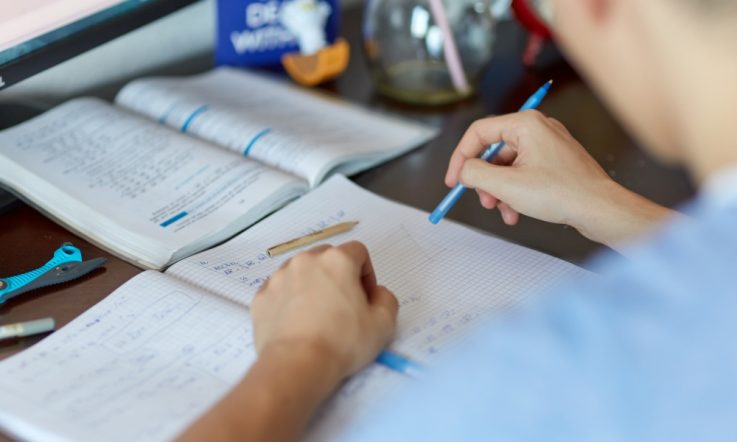Professor Adrian Piccoli is Director of the Gonski Institute for Education and a former New South Wales Minister for Education. His book 12 Ways Your Child Can Get the Best Out of School has just been released. Dr Pasi Sahlberg comments that it is a book for ‘anyone who wants to know more about schools and how to help both children and teachers do their very best'.
One of the topics Piccoli covers in the book is the importance of strong school-parent partnerships, and how parents and educators need to work together to help the other perform their roles effectively. In this extract for Teacher readers he talks about the school's role in this partnership, and why parents need to ‘cut teachers and principals some slack'.
The school's role in the three-way partnership
The role of a school is to reinforce all the social and emotional skills children learn at home as well as teaching children the reading, writing and maths strategies they need to understand in order to master their academic skills. It's the school's role to teach content and knowledge and expose children to sports, music and culture to prepare them for life after school, for further education and to be contributing members of their community. Schools' primary role is to teach students the ‘school curriculum'.
While parents and schools have separate roles, there are significant overlaps. Schools and parents need to work together to help the other perform their roles effectively. This is the essence of partnership that we constantly need to work on so that our children get the most out of their school.
When we don't have strong partnerships between schools and parents, we won't see schools be as effective as they can be. Conversely, when parents don't perform their role effectively by not properly supporting their child's school, it adversely affects the ability of teachers to teach.
“A teacher once told me about a parent who turned up to drop their child off at school but the child refused to get out of the car. The parent came into the front office and insisted that a teacher come out to the car park to help get the child out of the car. Of course, the teacher did it, that's the kind of people teachers are. However, the next day exactly the same thing happened. Another teacher was asked by a parent what they could do to get their children to go to bed on time at night and plenty of teachers get asked what they're doing to improve children's behaviour. Teachers get worn out and their enthusiasm for the job is affected when they're expected to be both the teacher and the parent. Most teachers say these kinds of incidents are on the rise.”
How to be a great partner with the school
Communicate regularly and effectively
Parents should expect their school to communicate with them regularly about the progress of their children's learning and wellbeing as well as their ongoing learning and wellbeing needs.
It's also true, however, that schools don't always know the most effective ways to communicate with parents. Some parents want to know everything, others only want to know the essentials. Some schools put on information nights only to see a handful of parents turn up. This is annoying for schools who are trying to communicate with parents. The reason these information evenings tend to be less successful is because a lot of parents just want to know about their own child or children, not necessarily what the school is doing more broadly. That's why it's important to maximise the information you get from your school by making sure you clearly communicate exactly what and how much you want to know and how you want it to be communicated to you.
Parents want to know when things go wrong at their children's schools and the sooner the better. If something is heading off the rails, parents want to know and to be able to seek assistance about the kind of strategies to use at home to help.
On the flip side, teachers also want to know what's happening at home. It helps teachers to know if things are going on at home that might impact on a child's behaviour or their schoolwork or motivation …
Schools are complicated places, so cut teachers and principals some slack
Sometimes, when parents contact their child's school with a question or a complaint it can take the school some time to get back to the parents or to deal with the issue. Sometimes, you might see a teacher in the afternoon and you get the impression you are getting the cold shoulder.
You shouldn't take these things personally because behind the scenes, teachers and principals often have to deal with urgent, complex and time-consuming issues ranging from schools providing breakfast for children who haven't been fed at home, to reporting suspected cases of domestic violence and/or child abuse, to dealing with divorced parents who have lawyers waiting at the school gate as part of a complicated custody battle in which the child and the school become collateral damage. These sorts of issues consume countless hours for teachers and principals and sometimes impact on the time they can spend teaching your child.
Principals also have to deal with the staff at their school. They can often be up early trying to find casual teachers to fill in for someone who is sick or dealing with other staffing issues. If you don't believe me, just ask your child's principal what happened today and you'll be amazed by the sometimes crazy job they have. Most teachers will say they love the kids they teach, what takes the most time and energy is dealing with the grown-ups.
I make this point because I know that teachers and principals can sometimes be criticised for not being as responsive to parents' issues in as timely a way as parents might like them to be. Just understand that there are other things happening and schools will prioritise urgent from less-urgent situations. Sometimes, your issue might fall into the non-urgent.
If it's not urgent, ask for a meeting with the teacher or principal, or send an email. If it's an issue the teacher can sort out, then email or talk to the teacher in the first instance rather than the principal. Remember, every moment we take teachers and principals away from their teaching responsibilities, we take away from our children's learning opportunities.
Complain, for sure, but make sure it's worth your time and your child's school's time. And if the teacher and the principal seem distracted by other events, they probably are.
Professor Adrian Piccoli writes: ‘When we don’t have strong partnerships between schools and parents, we won’t see schools be as effective as they can be’.
Think about your own context. In what ways do you build strong, respectful relationships with parents and carers? Have you discussed preferred ways of keeping in touch?
12 Ways Your Child Can Get the Best Out of School, by Adrian Piccoli, is published by ABC Books and is available to buy via this link.



